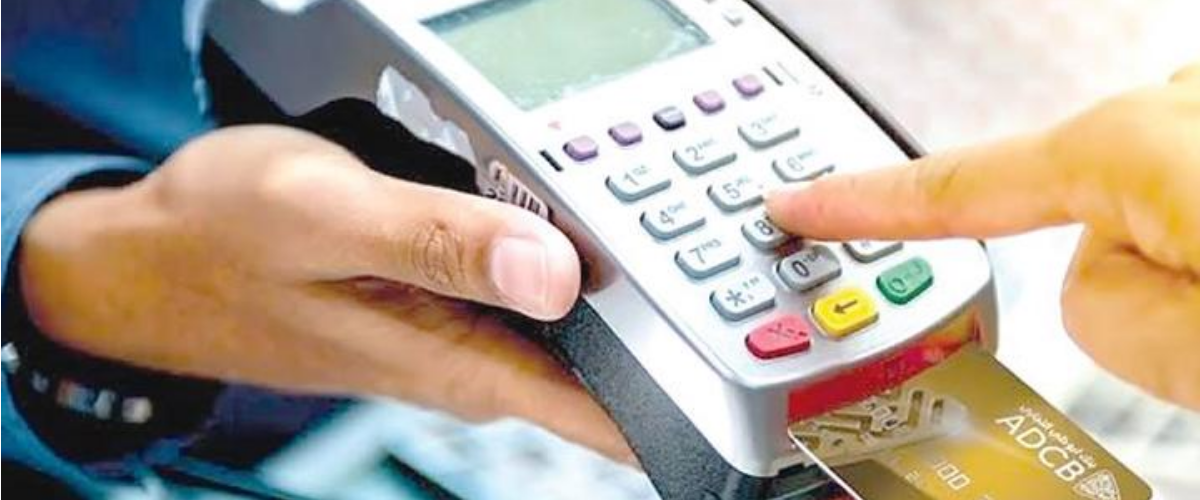Cloned bank alerts spread fear in Lagos
A viral video warning of the existence of an application that generates credit alerts to swindle the unsuspecting is creating widespread fear among residents of Lagos, Nigeria’s most-populated state.
The video, which has been widely shared, also demonstrates how a certain cloned bank can send fake credit alerts to genuine bank accounts of people transacting businesses with fraudsters using the computer application, without giving anything away………Continue Reading
In the video, the cloned bank platform is used to send credit alert to a bank account domiciled with Access Bank and the account owner is credited immediately.
His account balance is also updated by the app to show an addition to the existing balance.
The state Police Public Relations Officer, Benjamin Hundeyin, while speaking on the fake alert application, warned residents to be cautious when engaging in business transactions through the cashless means.
Hundeyin urged the people not to conclude business transactions without confirming the genuineness of payment through means other than credit alerts.
He said: “People must be very careful and cautious when doing business transactions. Safety starts from you before it gets to the police.
“People should confirm payments through their banks mobile applications or other means before consummating business transactions.”
The police image maker said some suspects had been arrested in the past over fake alerts and therefore advised residents with fake-alert experiences to report to the police.
Scarcity of naira notes and the move by the Federal Government to encourage a cashless economy have forced many residents of the state to further embrace electronic banking, which easily exposes them to the menace of fake alerts.
The Central Bank of Nigeria (CBN) had raised the alarm over recurring incidents of fake alert scams, promising to sanction complicit commercial banks.
The latest introduction in the scam industry is creating anxiety among residents of the state due to its seamless operation, though experts have explained how to decode it.
Experts also projected that operators of Point of Sale devices (popularly known as PoS), car marts and large shopping malls are more likely to fall victim to the new scam, especially those who are not in the habit of checking their credit balance online after receiving transfer alerts from customers.
A public analyst and business expert, Mr Victor Isibor, who analysed the disturbing video, said: “This video is not electrical but it will shock you.
“Please, pray for me because fraudsters, 419ers and Yahoo boys are not going to like that I am doing this. I am about to expose to you, the biggest, the newest scam format in town.
“If you are watching this, I am saving you hundreds of thousands and millions in cash.
“I am going to be revealing so much on this mind-blowing scam format in town right now. A few years ago, in my city, a car dealer had three young men walk into his car mart. They said they wanted to buy a car and that they were rushing for an event. They bought this car from him. He gave his account details to them and they paid. He got credit alert and he allowed them go. It was not until later in the day that he found out there was no cash (money) in his bank account.
“Recently, I got a video like a security alert. It turns out to be an application that has the ability to credit any bank account and you will get an SMS credit alert from your bank, yet the money will not be in your account .
“I couldn’t believe it until I saw how this thing works. This thing doesn’t even make mistakes. It takes into cognizance the amount of money you have in your account, your existing balance, then it adds the amount of money the fraudster sends to you, does the mathematics and you will see the total.
“That means that with this particular application, a scammer can walk into your business place, get goods and services from you, send you cash, you get an alert from your bank and they walk away. With this application, PoS operators are in trouble. Somebody can come to you, transfer cash to you, you get an alert and you give them raw cash and they walk away. You never get to discover until you try to make a withdrawal from your bank account, because that is when you will know they didn’t send you anything.”
Isibor volunteered security measures to take as a safeguard against the scam.
He said: “To keep yourself safe from this scam, one, if you are doing business in this time and age, you have no business using mobile phones that are not Internet-enabled. You need to download the mobile application of your bank, so that when money is sent, you will be able to check online if the money has truly landed in your account.
“SMS credit alert is no longer enough for you to confirm they have paid you. Though the creator of the video is acting as if warning everybody against using that application but at the end of it, he puts his WhatsApp number on the video and when you chat him, he is going to ask you to bring N12,000, to buy the application from him, because this particular application isn’t available on PlayStore or AppStore.
“The name of the application is ProBank. It is a deadly application. The creator says you can use the application to credit one bank in a day. You can imagine the amount of money this scammers are making on a daily basis. Ignorance is not an excuse. Another key thing to know about this application is that even if you don’t have an Internet-enabled phone, you can still know by the credit alert that you get There is a feature, a sign that you look out for and the moment you see it, in the SMS that you got from a payment that a customer made to you, hold them, they are thieves.”
In the original video introducing the application, the creator of the video who gave his name as Nnamdi Christian, said: “This app is not even on PlayStore. It was a friend of mine from the United Arab Emirates that introduced me to the app and I went straight to where I purchased it. It is a fraudulent app. It will even update balance.”
Demonstrating how it works, he said, “you click on transfer, then add a name (added his own name and his bank account number, before adding Nigeria’s Sort Code 234). You must not make mistake with the bank you are sending the fake alert to. That is how to use the app. Please use it only for pranks. Don’t use it for any illegal thing.”
The content creator then went on to send a fake N100,000 alert to his own account which was instantly credited to the bank account.
“The app is wicked, seriously,” Christian gushed after the successful demonstration.
What came up after he pushed the sent button was “payment successful. N100,000 has been paid to Nnamdi Christian,” complete with a reference number.
Christian then said, “Let’s wait for the alert” while quoting the figure in his account before the fake alert. “It will update the balance. This app is not good o.”
Christian confirmed that “Nigerian guys are now using it to do fraud. They are using it to send fake returns. So, just be careful. Don’t fall victim.”
While still on his admonition, the confirmation came up on his phone that N100,000 had been added to his balance, updating the balance, with him saying, “but if you check now, the money isn’t even on your mobile bank. The money won’t enter your account, because it won’t work with the banking system but people are falling for it, because it will update the balance and show you available and total software is dangerous.”
Putting residents of the state on notice, Christian said: “The way to know it is to look for Pro Bank in the alert. They built this app for pranks. But it is still new and not everybody knows about Pro Bank. If you are a PoS operator, anybody that wants to do transfer to you, just ask the person you want to see the app or you wait and once you receive alert if the alert carries something like Pro Bank, then just know that it is fake.”
A new menace
Practically all operators of PoS contacted by Saturday Tribune had not heard of the new app and its capacity to do what others before it couldn’t.
In a publication by Tribune Online on September 12, 2022 on fake credit alerts and how to detect them, it was noted that the existing apps like Flash Fund, Lofty SMS, Money Prank, Millionaire Fake Bank Account, among others, which could generate fake alerts but can’t credit balance, unlike the newest app, which Christian demonstrated and said could update and add fake amount to the balance of the receiver.
The report said that in knowing fake alert, “your account balance will not be credited. The real bank alert will show you how much you had before the alert and after the alert. Fake bank alerts will not contain your available balance so you can easily detect the fake alert, if your account balance does not reflect along with transfer payment done by your customers/buyers.”
The Pro Bank app has changed all that.
The greater danger with the new app for PoS operators in particular is that even before its advent, they have been losing money to other less-sophisticated fake alert apps.
Tomiwa Atobatele, who told a story of her loss, said she lost N140,000 to three young men who used fake alert to dupe her where she was working for a PoS owner.
She said: “My boss warned me not to give anyone money before receiving a credit alert. What she didn’t tell me however was that I could get a credit alert and still not get money in the account. Fake bank alerts are real.
“I was in the shop when three friends walked in and told me they wanted cash. When I heard the amount they needed, I was excited because of the charges on it for my boss. I brought out the PoS, I gave them the account to credit and they made a transfer. I waited a bit and they got debited while our account was credited. I gave them the amount they credited, they paid the charges on it and left.
“It was when I screamed that the people in the neighbourhood came and told me that I probably had fallen victim to a fake alert. When I told my boss, she felt sorry but told me that I would refund her. She has been deducting N15,000 from my money monthly.”
Banking sector stakeholders react
The Group Head, Operations, Hope Payment Service Bank, Mr Sunday Abah, on Friday urged concerned regulatory authorities and law enforcement agencies to watch out for such fraudulent activities.
“At the moment, the best that individual banks could do is to help educate the banking public,” he said.
According to him, when someone receives an alert, the person should not rely wholly on that alert but try to check their account balance, using the bank’s payment app.
The Nigeria Electronic Fraud Forum (NeFF) has been warning against downloading apps that may carry phishing capabilities to unsuspecting mobile banking users as mobile fraud rise in Nigeria.
Director of Payments System Management Department, CBN, Mr Musa Jimoh, who corroborated this recently in Lagos, said plans were being made by the CBN and NeFF to ensure that no e-fraud activities take place in Nigerian banks in the nearest future.
He gave the assurance at NeFF Annual General Meeting in Lagos, where he stated that hackers were targeting to access unsuspecting customers through mobile apps.
Stakeholders at the event warned that rogue mobile apps are believed to be one of the fastest-growing phenomena among cybercriminals. Fraudsters, they said, create malicious apps that appear genuine, taking advantage of the trust of customers to access their personal information. This can be viewed as a form of phishing on the mobile platform.
In terms of the future outlook, they said NeFF intends to introduce some payment valves in the ecosystem which include embarking on a multi-industry coordinated fraud awareness campaign to extend the concept of an anti-fraud forum to cover the West African sub region, constitute a consumer protection plan and operationalise the Payment System Security Risk Management Center (PSSRMC) which will include a dedicated police desk that will focus on payment and card crimes.











